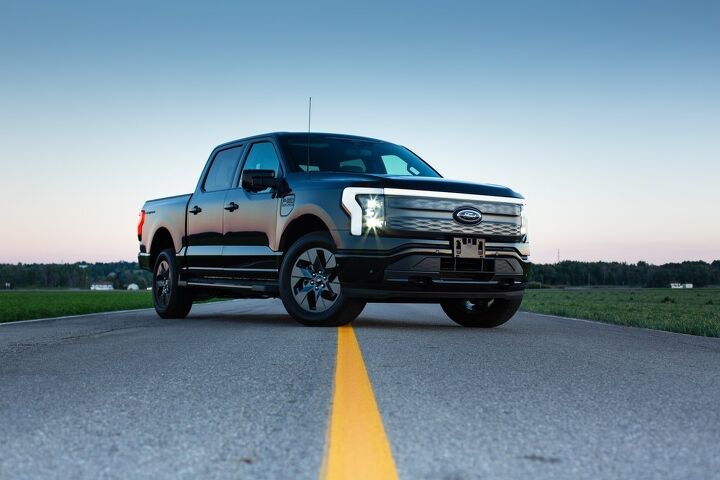From Coast to Coast: Uncovering the Most Loved Cars in Each State
Every state in America has its own unique preferences when it comes to choosing the right vehicle. These preferences are shaped by a variety of factors, including the state's geographical landscape, climate, and lifestyle of its residents. An article by J.D. Power explores the most popular vehicles sold be state.
- Alabama: Ford F-150
- Alaska: Subaru Outback
- Arizona: Toyota Tacoma
- Arkansas: GMC Sierra 1500
- California: Honda Civic
- Colorado: Subaru Forester
- Connecticut: Toyota RAV4
- Delaware: Ford Explorer
- Florida: Toyota Corolla
- Georgia: Chevrolet Silverado 1500
- Hawaii: Toyota Tacoma
- Idaho: Ford F-150
- Illinois: Honda Civic
- Indiana: Chevrolet Silverado 1500
- Iowa: Ford F-150
- Kansas: Chevrolet Silverado 1500
- Kentucky: Ford F-150
- Louisiana: Ford F-150
- Maine: Subaru Outback
- Maryland: Toyota RAV4
- Massachusetts: Honda CR-V
- Michigan: Ford F-150
- Minnesota: Chevrolet Silverado 1500
- Mississippi: Chevrolet Silverado 1500
- Missouri: Ford F-150
- Montana: Ford F-150
- Nebraska: Ford F-150
- Nevada: Toyota RAV4
- New Hampshire: Subaru Outback
- New Jersey: Honda CR-V
- New Mexico: Ford F-150
- New York: Honda CR-V
- North Carolina: Toyota RAV4
- North Dakota: Chevrolet Silverado 1500
- Ohio: Honda Civic
- Oklahoma: Ford F-150
- Oregon: Toyota RAV4
- Pennsylvania: Honda CR-V
- Rhode Island: Honda Civic
- South Carolina: Ford F-150
- South Dakota: Ford F-150
- Tennessee: Chevrolet Silverado 1500
- Texas: Ford F-150
- Utah: Ford F-150
- Vermont: Subaru Outback
- Virginia: Toyota RAV4
- Washington: Subaru Outback
- West Virginia: Ford F-150
- Wisconsin: Chevrolet Silverado 1500
- Wyoming: Ford F-150
The diversity in vehicle preferences across the United States reflects the varied lifestyles, climates, and terrains of each state. From the rugged Ford F-150 in Alabama to the versatile Toyota RAV4 in Oregon, each vehicle serves the unique needs of its local population. Understanding these preferences offers valuable insight into the regional characteristics and priorities of American drivers, emphasizing the importance of a vehicle's functionality, reliability, and adaptability in meeting the everyday demands of life across the country.
This article was co-written using AI and was then heavily edited and optimized by our editorial team.
More by TTAC Staff
Latest Car Reviews
Read moreLatest Product Reviews
Read moreRecent Comments
- ChristianWimmer Exterior and interior look pretty flawless for such a high mileage car. To me this is an indication that it was well-maintained and driven responsibly. It’s not my cup of tea but it’s bound to find an enthusiastic owner out there.And with ANY car, always budget for maintenance.
- Fred I'm a fan and watch every race. I've missed a few of the live races, but ESPN repeats them during more reasonable hours.
- Mikesixes It has potential benefits, but it has potential risks, too. It has inevitable costs, both in the price of the car and in future maintenance. Cars with ABS and airbags have cost me at least 2000 bucks in repairs, and have never saved me from any accidents. I'd rather these features were optional, and let the insurance companies figure out whether they do any good or not, and adjust their rates accordingly.
- Daniel Bridger Bidenomics working.
- Michael Gallagher Some math! The cost to produce US Shale derived oil is between $35 to $55/bbl. Middle East oil cost about $15/bbl. If OPEC wanted, they could produce more , driving oil prices below our costs and decimating our domestic industry. We have whispered in their ear that they should endeavor to keep the price above our cost, in exchange for political, economic and security favors. Case in point, during COVID when gas dropped below $2/gal , producers were losing money, Trump had to approach the Saudis requesting them to cut production to raise the oil price above our cost. If the global oil industry was truly competitive, our industry would be out of business very quickly due to our much higher cost of production. Those that long for those covid prices need to realize it would be at the expense of our domestic industry.

































Comments
Join the conversation